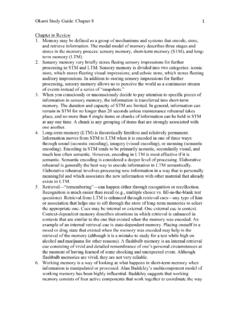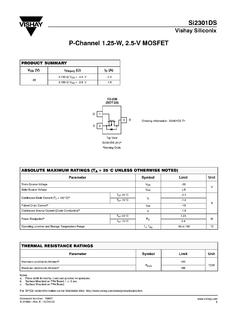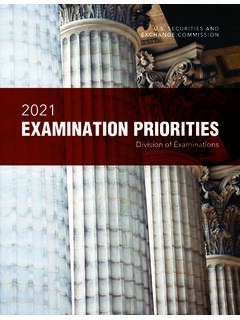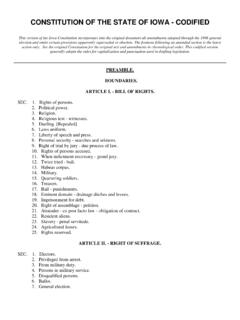Transcription of Text of the original 1947 National Security Act
1 The National Security Act of 1947 July 26, 1947 Public Law 253, 80th Congress; Chapter 343, 1st Session; S. 758. AN ACT To promote the National Security by providing for a Secretary of Defense; for a National Military Establishment; for a Department of the Army, a Department of the Navy, and a Department of the Air Force; and for the coordination of the activities of the National Military Establishment with other departments and agencies of the Government concerned with National Security . Be it enacted by the Senate and House of Representatives of the United States of America in Congress assembled, SHORT TITLE That this Act may be cited as the National Security Act of 1947 . TABLE OF CONTENTS Declaration of policy TITLE I COORDINATION FOR National Security Sec.
2 101. National Security Council. Sec. 102. Central Intelligence Agency. Sec. 103. National Security Resources Board. TITLE II THE National MILITARY ESTABLISHMENT Sec. 201. National Military Establishment. Sec. 202. Secretary of Defense. Sec. 203. Military Assistants to the Secretary. Sec. 204. Civilian personnel. Sec. 205. Department of the Army. Sec. 206. Department of the Navy. Sec. 207. Department of the Air Force. Sec. 208. United States Air Force. Sec. 209. Effective date of transfers. Sec. 210. War Council. Sec. 211. Joint Chiefs of Staff. Sec. 212. Joint Staff. Sec. 213. Munitions Board. Sec. 214. Research and Development Board. TITLE III MISCELLANEOUS Sec. 301. Establishment of Compensation of Secretaries.
3 Sec. 302. Under Secretaries and Assistant Secretaries. Sec. 303. Advisory committees and personnel. Sec. 304. Status of transferred civilian personnel. Sec. 305. Saving provisions. Sec. 306. Transfer of funds. Sec. 307. Authorization for appropriations. Sec. 308. Definitions. Sec. 309. Separability. Sec. 310. Effective date. Sec. 311. Succession to the Presidency. DECLARATION OF POLICY Sec. 2. In enacting this legislation, it is the intent of Congress to provide a comprehensive program for the future Security of the United States, to provide for the establishment of integrated policies and procedures for the departments, agencies, and functions of the Government relating to the National Security ; to provide three military departments for the operation and administration of the Army, the Navy (including naval aviation and the United States Marine Corps), and the Air Force, with their assigned combat and service components; to provide for their authoritative coordination and unified direction under civilian control but not to merge them.
4 To provide for the effective strategic direction of the armed forces and for their operation under unified control and for their integration into an efficient team of land, naval, and air forces. TITLE I COORDINATION FOR National Security National Security Council Sec. 101. (a) There is hereby established a council to be known as the National Security Council (hereinafter in this section referred to as the Council ). The President of the United States shall preside over meetings of the Council: PROVIDED, That in his absence he may designate a member of the council to preside in his place. The function of the Council shall be to advise the President with respect to the integration of domestic, foreign, and military policies relating to the National Security so as to enable the military services and the other departments and agencies of the Government to cooperate more effectively in matters involving the National Security .
5 The Council shall be composed of the President; the Secretary of State, the Secretary of Defense, appointed under section 202; the Secretary of the Army, referred to in section 205; the Secretary of the Navy; the Secretary of the Air Force, appointed under section 207; the chairman of the National Security Resources Board, appointed under section 103; and such of the following named officers as the President may designate from time to time: The Secretaries of the executive departments, the Chairman of the Munitions Board appointed under section 213, and the chairman of the Research and Development Board appointed under section 214; but no such additional member shall be designated until the advice and consent of the Senate has been given to his appointment to the office the holding of which authorizes his designation as a member of the Council.
6 (b) In addition to performing such other functions as the President may direct, for the purpose of more effectively coordinating the policies and functions of the departments and agencies of the Government relating to the National Security , it shall, subject to the direction of the President, be the duty of the council (1) to assess and appraise the objectives, commitments, and risks of the United States in relation to our actual and potential military power, in the interest of National Security ; for the purpose of making recommendations to the President in connection therewith; and (2) to consider policies on matters of common interest to the departments and agencies of the Government concerned with the National Security , and to make recommendations to the President in connection therewith.
7 (c) The Council shall have a staff to be headed by a civilian executive secretary who shall be appointed by the President, and who shall receive compensation at the rate of $10,000 a year. The executive secretary, subject to the direction of the Council, is hereby authorized, subject to the civil service laws and the Classification Act of 1923, as amended, to appoint and fix the compensation of such personnel as may be necessary to perform such duties as may be prescribed by the council in connection with the performance of its functions. (d) The Council shall, from time to time, make such recommendations, and such other reports to the President as it deems appropriate or as the President may require.
8 Central Intelligence Agency Sec. 102. (a) There is hereby established under the National Security Council a Central Intelligence Agency with a Director of Central Intelligence, who shall be the head thereof. The Director shall be appointed by the President, by and with the advice and consent of the Senate, from among the commissioned officers of the armed services or from among individuals in civilian life. The Director shall receive compensation at the rate of $14,000 a year. (b) (1) If a commissioned officer of the armed services is appointed as Director then (A) in the performance of his duties as Director, he shall be subject to no supervision, control, restriction, or prohibition (military or otherwise) other than would be operative with respect to him if he were a civilian in no way connected with the Department of the Army, the Department of the Navy, the Department of the Air Force, or the armed services or any component thereof.
9 And (B) he shall not possess or exercise any supervision, control, powers, or functions (other than such as he possesses, or is authorized or directed to exercise, as Director) with respect to the armed services or any component thereof, the Department of the Army, the Department of the Navy, or the Department of the Air Force, or any branch, bureau, unit or division thereof, or with respect to any of the personnel (military or civilian) of any of the foregoing. (2) Except as provided in paragraph (1), the appointment to the office of Director of a commissioned officer of the armed services, and his acceptance of and service in such office, shall in no way affect any status, office, rank, or grade he may occupy or hold in the armed services, or any emolument, perquisite, right, privilege, or benefit incident to or arising out of any such status, office, rank, or grade.
10 Any such commissioned officer shall, while service in the office of Director, receive the military pay and allowances (active or retired, as the case may be) payable to a commissioned officer of his grade and length of service and shall be paid, from any funds available to defray the expenses of the Agency, annual compensation at a rate equal to the amount by which $14,000 exceeds the amount of his annual military pay and allowances. (c) Notwithstanding the provisions of section 6 of the Act of August 24, 1912 (37 Stat. 555), or the provisions of any other law, the director of Central Intelligence may, in his discretion, terminate the employment of any officer or employee of the Agency whenever he shall deem such termination necessary or advisable in the interests of the United States, but such termination shall not affect the right of such officer or employee to seek or accept employment in any other department or agency of the Government if declared eligible for such employment by the United States Civil Service Commission.

















